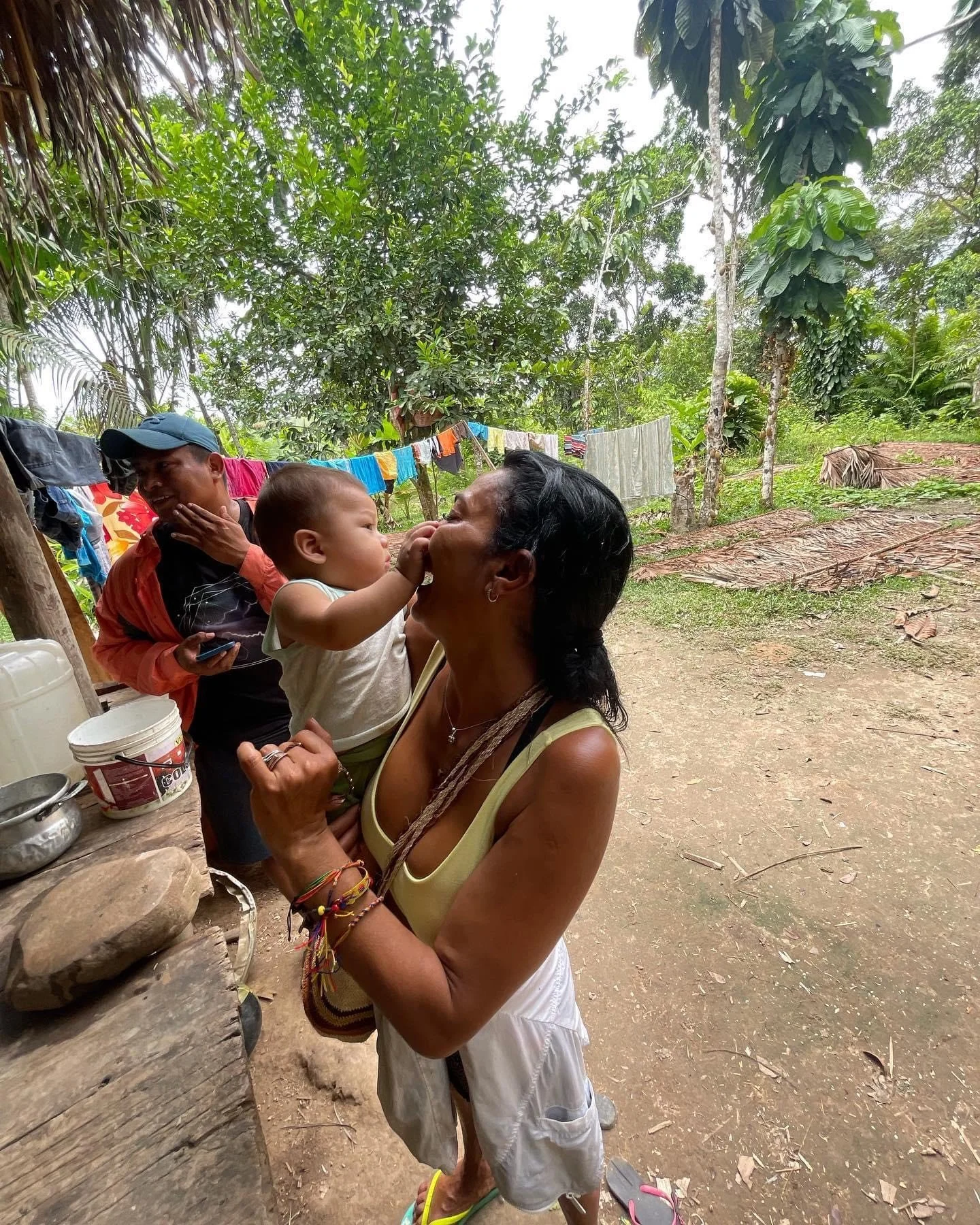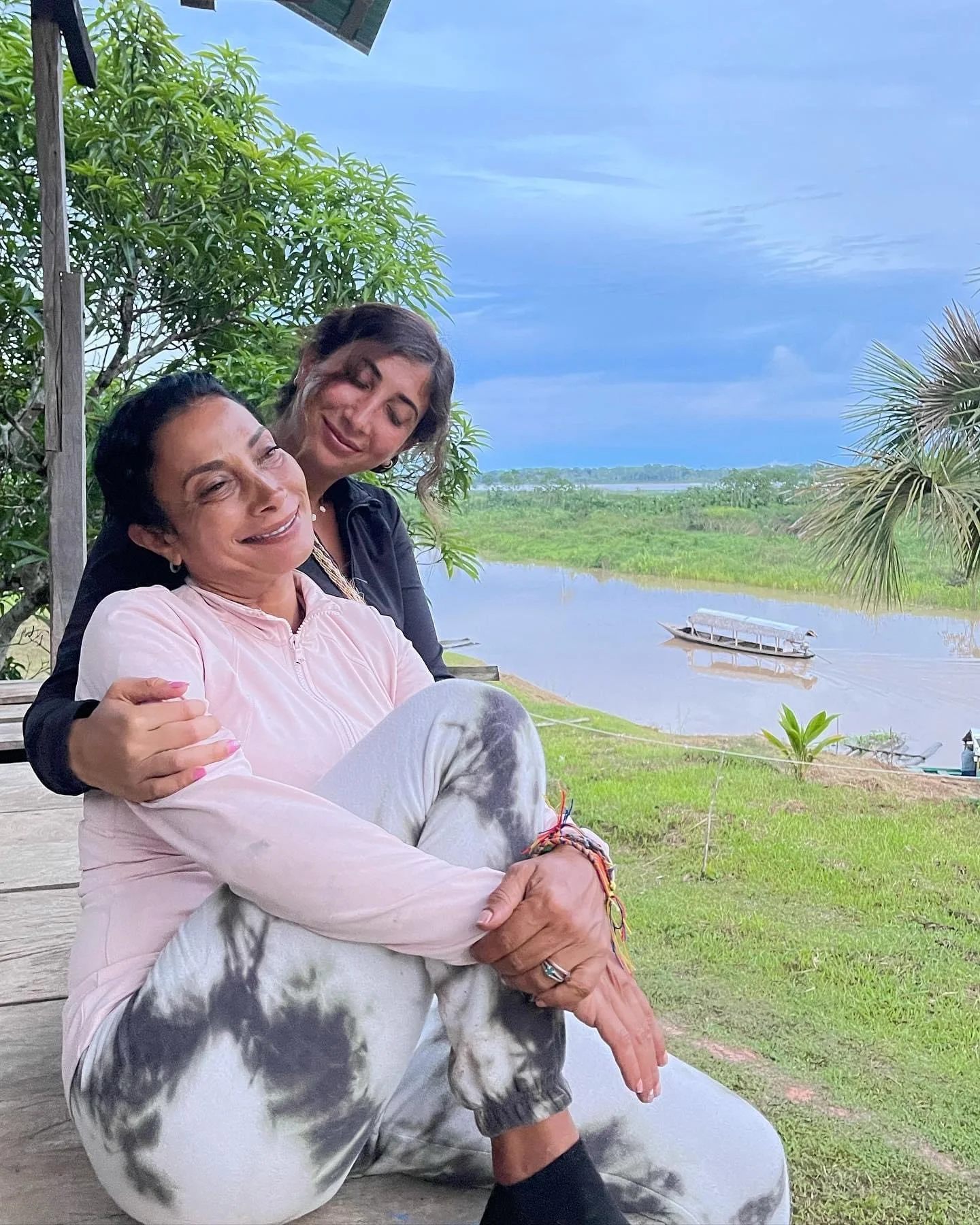Pearls of Life: Intercultural Medicine, Malaria Treatment and Prevention in the Amazonas Region of Colombia.
All rights reserved, Leelush.com
Carmit visiting an indigenous village in the Amazon.
Discovering the importance of natural medicine and the integration of western treatment for Malaria and prevention in the Amazonas Region of Colombia is a paramount goal of achievement in the view of Leelush.com.
We are committed to translate our abilities to introduce the western treatment for Malaria and prevention of the spread of this infectious disease in the Amazon region among the indigenous communities. We have drafted a project proposal and contacted other agencies to support our goal. The importance of this initiative is combined with the completion of healthcare models and mobility among the indigenous communities in the Amazon.
Our team led by Carmit is in contact with leaders of the indigenous communities in the Amazon regions and with local organizations who are supporting this initiative. In the Amazon regions, the traditional medicine is based on natural plants that are used by the Shaman who are the healers of the tribes. While respecting the tradition and the wisdom of the ancestors passed from generation to generation by the Shaman healers, it is important to take into consideration climate change and the sensitivity to the spread of infectious diseases such as malaria. A lot of academic material is written about Malaria but not much about the wisdom of the natural medicine conducted by the Shaman healers. The combination of two, is supporting a new model for intercultural health that can be implemented only when you receive a trust relationship with the Shaman healers of the indigenous communities in the region of the Amazon.
We would like to share with you in this blog our initiative and to request your support in a form that is suitable for the cause of this initiative. As such, being a pioneer in implementing innovation for the indigenous communities health system by recognizing the importance of the Shaman healers and reaching out to remote communities infected with climate change and infectious disease.
Boat ride along the Amazon River.
The Amazon region of Colombia is home to numerous indigenous communities who are currently facing a severe health crisis due to malaria. Malaria is a life-threatening disease caused by parasites transmitted to people through the bites of infected mosquitoes. Despite being preventable and treatable, the indigenous populations in this region suffer disproportionately due to limited access to healthcare services and preventive measures.
Our project aims to reduce the incidence of malaria and improve health outcomes for these communities through a comprehensive approach involving treatment, prevention, and education.
Carmit and Noy smiling and overlooking the Amazon River.
At Leelush.com , we thought about the objectives of our initiatives project. We would like to share with you those objectives:
1. Provide Malaria Treatment:
Distribute effective malaria medications to those diagnosed with the disease.
Ensure timely treatment to prevent complications and fatalities.
Establish mobile health units to reach remote areas for diagnosis and treatment.
Establish healthcare facilities in the indigenous communities in the amazon area.
2. Implement Preventive Measures:
Distribute insecticide-treated bed nets to protect families from mosquito bites while they sleep.
Conduct indoor residual spraying in homes to reduce mosquito populations.
Provide preventive medications to high-risk populations, such as pregnant women and children.
Provide medical care for pregnant women infected in malaria for protection of the newborn.
3. Health Education and Community Training:
Educate community members on malaria prevention, recognition of symptoms, and the importance of seeking timely treatment.
Train local healthcare workers and volunteers to carry out malaria prevention and treatment activities.
Develop and distribute educational materials in local languages to ensure effective communication.
Travel to remote communities with a medical team on a periodic basis.
We, at Leelush.com, anticipate that the project activities with collaboration of the local indigenous communities of the Amazon will include:
1. Malaria Treatment:
Procurement of malaria medications.
Distribution through local health posts and mobile clinics as well as health facilities in the remote indigenous communities in the amazon area.
Monitoring and follow-up of treated patients to ensure recovery and prevent relapses.
2. Preventive Measures:
Distribution of insecticide-treated bed nets.
Indoor residual spraying campaigns.
Provision of preventive medications to vulnerable groups.
3. Education and Training:
Community workshops and training sessions.
Development of culturally appropriate educational materials.
Ongoing support and supervision of trained community health workers.
For all doing and with the support of the local communities and organizations the expected outcomes are:
Reduction in malaria incidence and mortality rates.
Increased awareness and knowledge about malaria prevention and treatment within the community.
Improved access to healthcare services for remote indigenous populations.
Enhanced capacity of local health workers to manage and prevent malaria.
Collaboration with local leaders, humanitarian organizations and the Colombian government to support the indigenous communities.
Education for family units and children awareness for the preventative treatment and hygienics.
As a final word in this blog, we would like to transpire that the Malaria Treatment and Prevention Project in the Amazonas region of Colombia is a vital initiative to combat a devastating disease that disproportionately affects indigenous communities.
With your support, we can provide life-saving treatments, prevent new infections, and educate communities to sustain long-term health improvements. Together, we can make a significant impact and bring hope to those in need.
Thank you for reading this blog. To support our initiative, please subscribe to our website and hit the donation button on our homepage.
To support our initiative, please donate on our homepage or buy a gift card in our online store.





